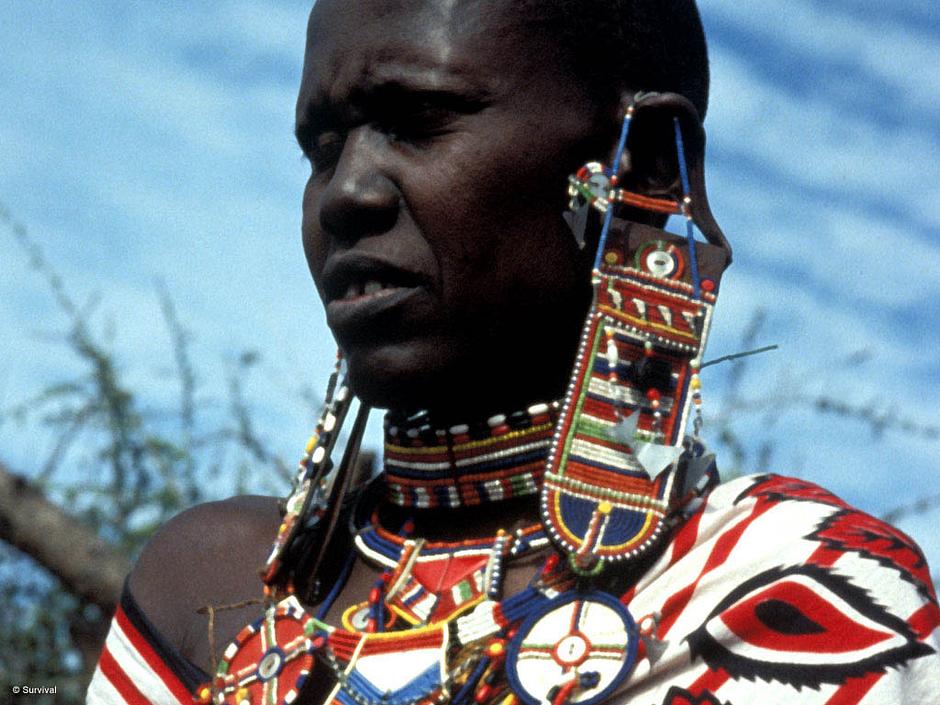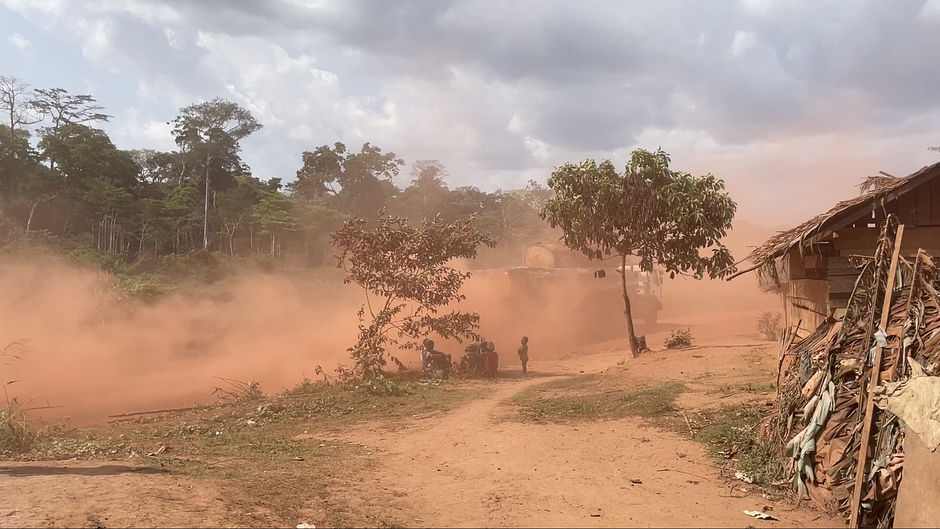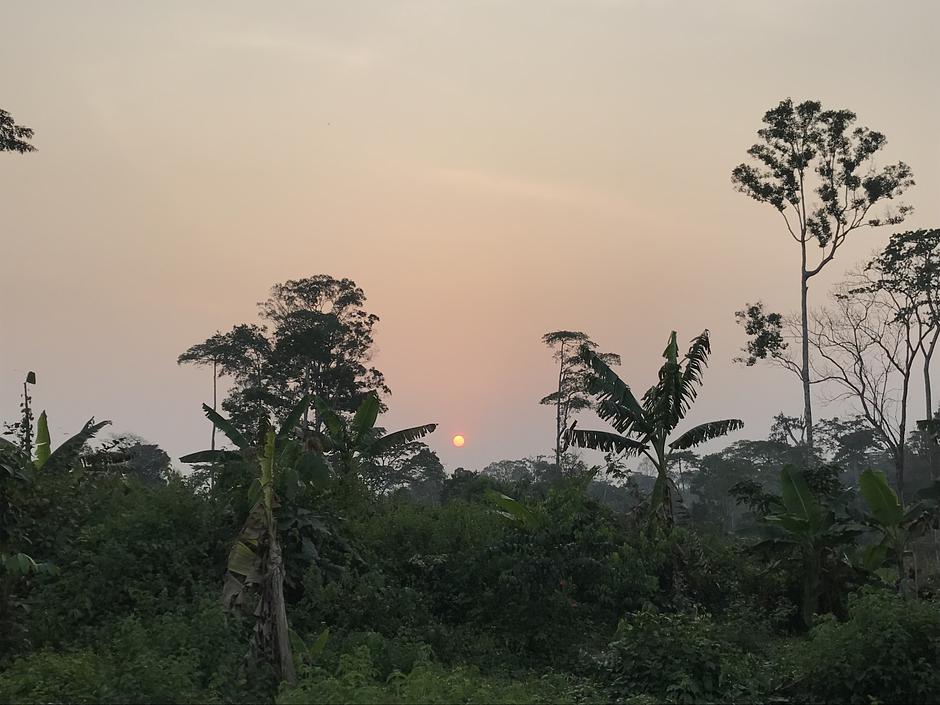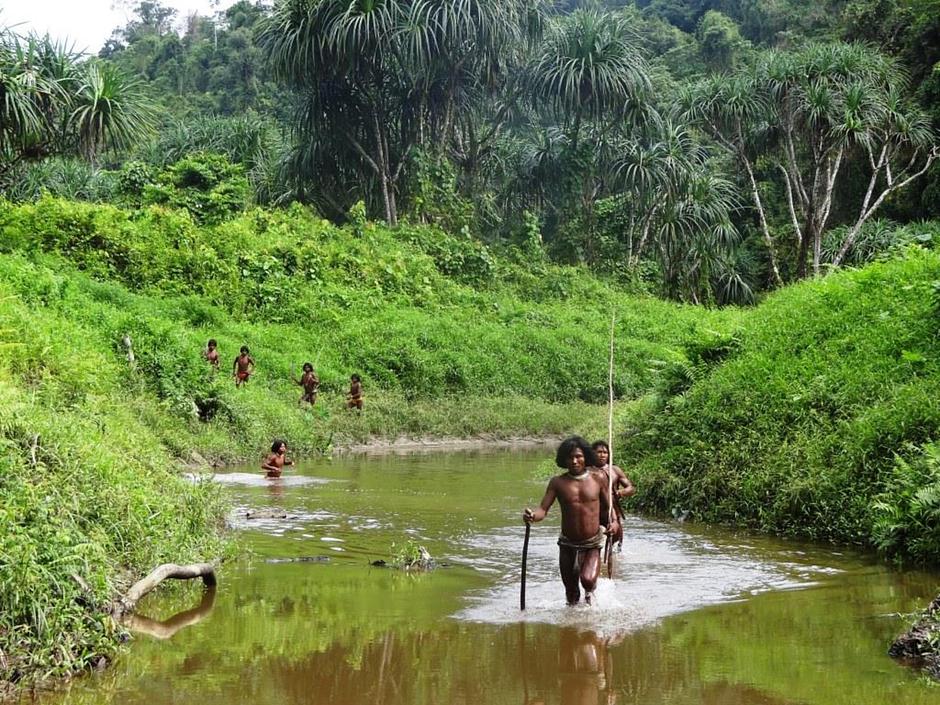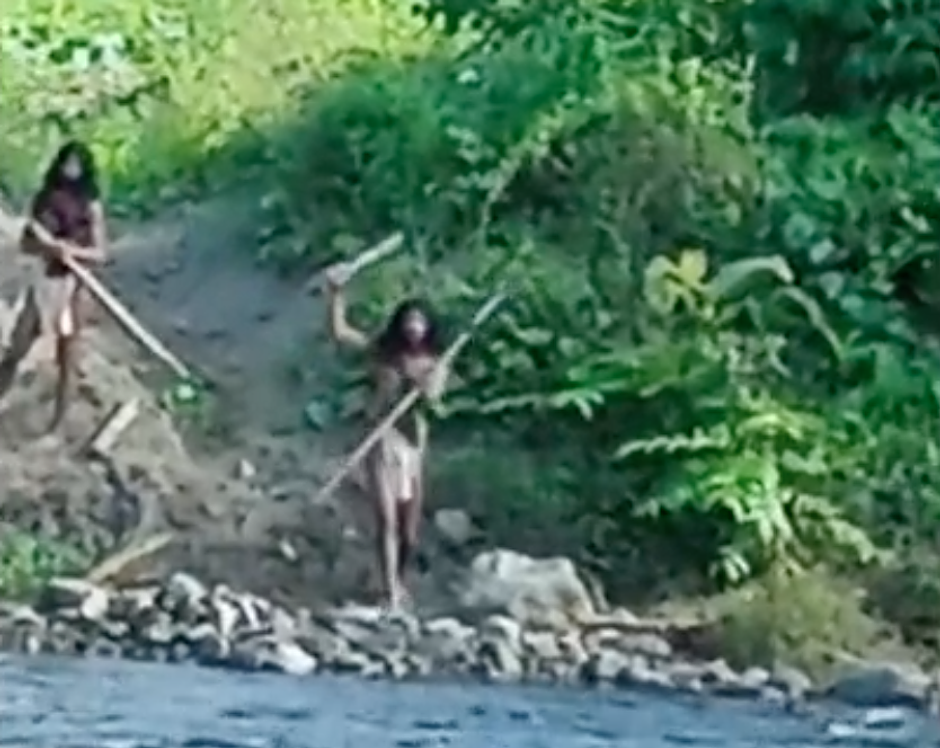I met the tribe on the front line in the battle to save Indonesia’s forests
Survival campaigner Sophie Grig recounts her experiences visiting the Orang Rimba in Indonesia’s rainforests
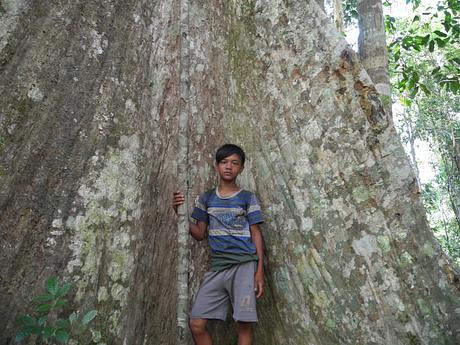
“We’re proud that we still have the forest,” Temenggung Grip says, standing tall, waving at the vast expanse of trees.
“We feel proud to be Orang Rimba, everything we have talked about still exists, people ask about tigers, how big are they, what are they like, and we know about them, we have seen them. We see many animals inside the park, we experience these things for ourselves.”
Perhaps inevitably, his thoughts turn to other, less cheerful things: “There is so much destruction and deforestation around us, but we still have our forest."
A quick glance at a map of the area will tell you how fortunate the Orang Rimba are to still have their forest. After years of lobbying, an area of rainforest was officially designated a National Park in 2000. The park is unique in Indonesia as its purpose is not only to protect the environment but also to secure the forest for the Orang Rimba. There they are allowed to hunt, gather and plant in the park, as they have for generations. But it is only a small island in a sea of plantations, surrounded by destructive agro-industry.
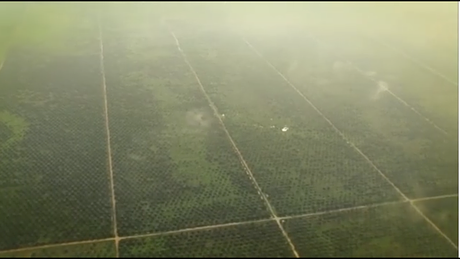
This really is the frontline in the battle to save what is left of Indonesia’s forests, and the people who call them home. All around the Park are acre upon acre of plantations, mostly rubber, acacia for the paper industry, and palm oil. There is no undergrowth, no wildlife, just endless rows of trees and the occasional guarded checkpoint. As a visitor you can’t help but feel intimidated at every turn, and the Orang Rimba feel this more acutely than anyone.
“In the forest we wake up with the sound of the birds and the animals but here…” says Temenggung Grip, pointing to the houses the government have built for his community in a transmigration site. “Here we’re woken by the sound of the machines, like a big motorbike exhaust, and we’re very shocked.”
Not all of the Orang Rimba are lucky enough to live in the park. Many of the 4,000 or so tribespeople live outside it, a few in specially constructed government houses built of asbestos sheets, which do not provide them with the quality of life they are used to. Others are forced to camp out in palm oil plantations or at the side of the road. Many are reduced to begging to survive.
“There are so many differences between us and outsiders,” Temenggung Grip continues, “our way of life, the kind of food we eat… And the houses – we only live in small houses.”
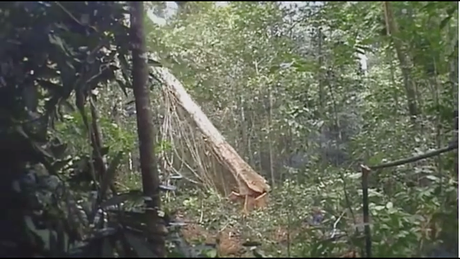
The Orang Rimba have a strong sense of connection to place, and to the living things that are found there. Compared to the government villages, their lives inside the Park are idyllic, lived according to strict traditions and a strong reverence for the forest. Away from the oppressive atmosphere of the plantations, I immediately felt calmer, listening to the sounds of birds and monkeys, feeling life all around me once again.
"When we are in the forest we have so much food and so much choice,” says Njelo, another Orang Rimba, as he described the abundance of food the tribe gather from the forest. “And there are so many things to do, like hunting, planting, looking for dragon blood [a resin used to make a precious dye] and rattan [used for making baskets].”
Trees are essential to Orang Rimba society. They are at the core of some of the tribe’s most important rituals. When an Orang Rimba is born, their umbilical cord is buried in the rich soil of the forest, and a Sentubung tree is planted to grow on top. Each individual maintains a sacred bond with that tree for the rest of their life, charting their age as it grows and jealously guarding it from being attacked or felled. As far as the Orang Rimba are concerned, cutting down a birth tree is equivalent to murder.
Similarly, early in every Orang Rimba’s life a shaman takes a piece of bark from a Senggeris tree and uses it to decide their name. These trees are therefore precious as the source of every person in the tribe’s unique identity, and are considered just as sacred as the birth trees.
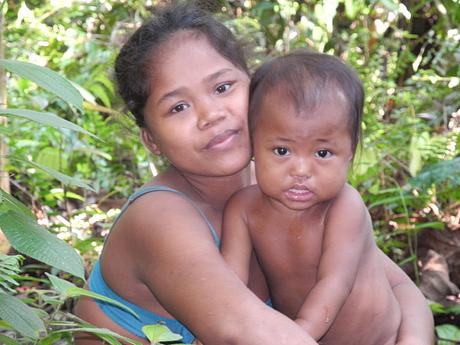
I have been consistently astonished by the ecological knowledge of tribes everywhere I have visited them, and the Orang Rimba were no different. They expressed profound concern over the impact of palm oil agriculture on the land around the forest, knowing from experience that it drains the soil of its nutrients and makes it impossible for anything else to grow there. They are instinctively wary of outsiders, conscious of the impact they can have on delicate eco-systems, or the diseases they can bring into a community. I had to sleep in a separate camp away from the settlement I visited, my status as a stranger underlined by a strict taboo.
It is quite understandable that they should be wary. The Orang Rimba know that they face an uncertain future. Companies have already torn down so much of their forest and replaced it with bleak plantations; the government seeks to settle them in permanent houses, and encourages them to abandon their religion. They fear that at some point in the future the government will change its mind and ban them from the Park, as is happening in many other countries around the world.
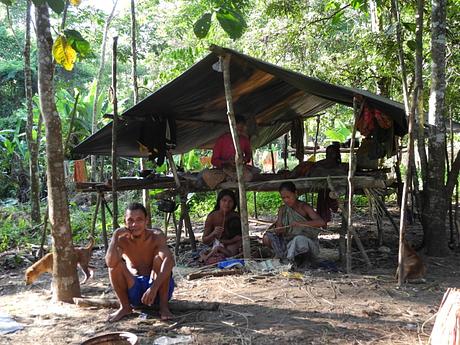
“We’re scared that if we get banned from the park we will end up as homeless beggars,” says Temenggung Grip. He is adamant that as long as the Orang Rimba are allowed to remain guardians of this forest, it will survive, and the tribe will have a secure future.
“You can stand up and look to the National Park, and see so many trees. It’s proof that we protect the forest" he says, pride entering into his voice. “We want to keep the animals alive, we build a border with the rubber trees so villagers don’t cut down the trees around the park.”
The Orang Rimba are determined to protect their forest and the life they have built for themselves within its boundaries. After visiting them and seeing for my own eyes, once again, what brilliant conservationists tribal people are, I’m just as determined that they should be allowed to do so.
Sophie Grig was in conversation with Survival’s Lewis Evans


